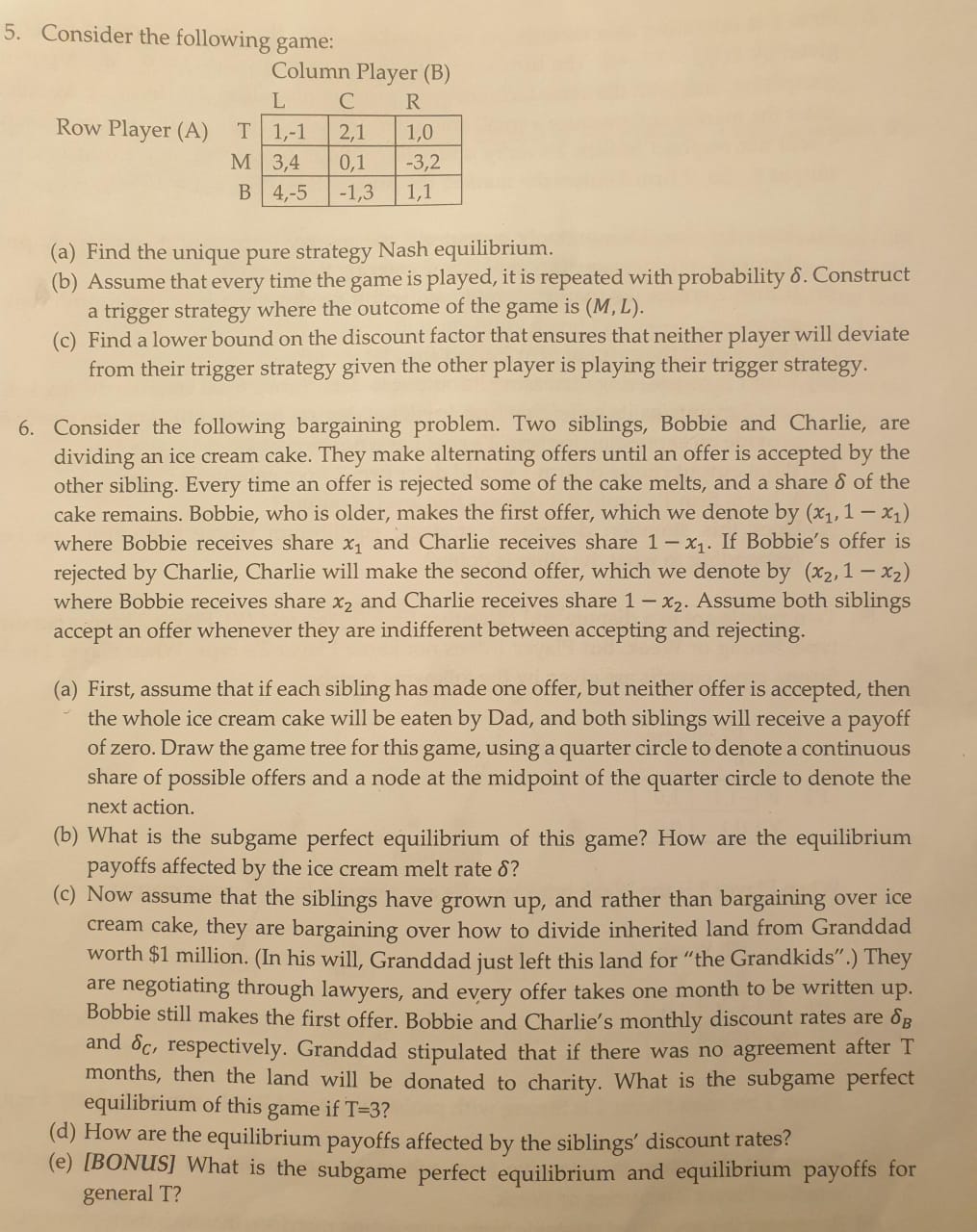(Solved): 5. Consider the following game: (a) Find the unique pure strategy Nash equilibrium. (b) Assume that ...
5. Consider the following game: (a) Find the unique pure strategy Nash equilibrium. (b) Assume that every time the game is played, it is repeated with probability \( \delta \). Construct a trigger strategy where the outcome of the game is \( (M, L) \). (c) Find a lower bound on the discount factor that ensures that neither player will deviate from their trigger strategy given the other player is playing their trigger strategy. 6. Consider the following bargaining problem. Two siblings, Bobbie and Charlie, are dividing an ice cream cake. They make alternating offers until an offer is accepted by the other sibling. Every time an offer is rejected some of the cake melts, and a share \( \delta \) of the cake remains. Bobbie, who is older, makes the first offer, which we denote by \( \left(x_{1}, 1-x_{1}\right) \) where Bobbie receives share \( x_{1} \) and Charlie receives share \( 1-x_{1} \). If Bobbie's offer is rejected by Charlie, Charlie will make the second offer, which we denote by ( \( x_{2}, 1-x_{2} \) ) where Bobbie receives share \( x_{2} \) and Charlie receives share \( 1-x_{2} \). Assume both siblings accept an offer whenever they are indifferent between accepting and rejecting. (a) First, assume that if each sibling has made one offer, but neither offer is accepted, then the whole ice cream cake will be eaten by Dad, and both siblings will receive a payoff of zero. Draw the game tree for this game, using a quarter circle to denote a continuous share of possible offers and a node at the midpoint of the quarter circle to denote the next action. (b) What is the subgame perfect equilibrium of this game? How are the equilibrium payoffs affected by the ice cream melt rate \( \delta \) ? (c) Now assume that the siblings have grown up, and rather than bargaining over ice cream cake, they are bargaining over how to divide inherited land from Granddad worth \( \$ 1 \) million. (In his will, Granddad just left this land for "the Grandkids".) They are negotiating through lawyers, and every offer takes one month to be written up. Bobbie still makes the first offer. Bobbie and Charlie's monthly discount rates are \( \delta_{B} \) and \( \delta_{C} \), respectively. Granddad stipulated that if there was no agreement after T months, then the land will be donated to charity. What is the subgame perfect equilibrium of this game if \( \mathrm{T}=3 \) ? (d) How are the equilibrium payoffs affected by the siblings' discount rates? (e) [BONUS] What is the subgame perfect equilibrium and equilibrium payoffs for general T?
